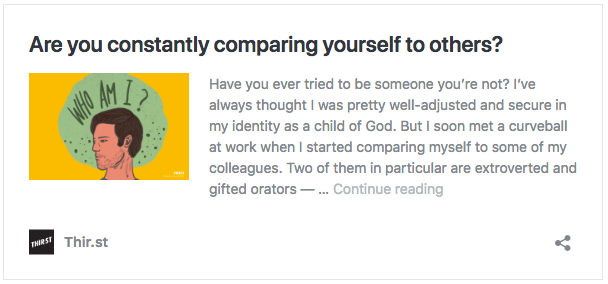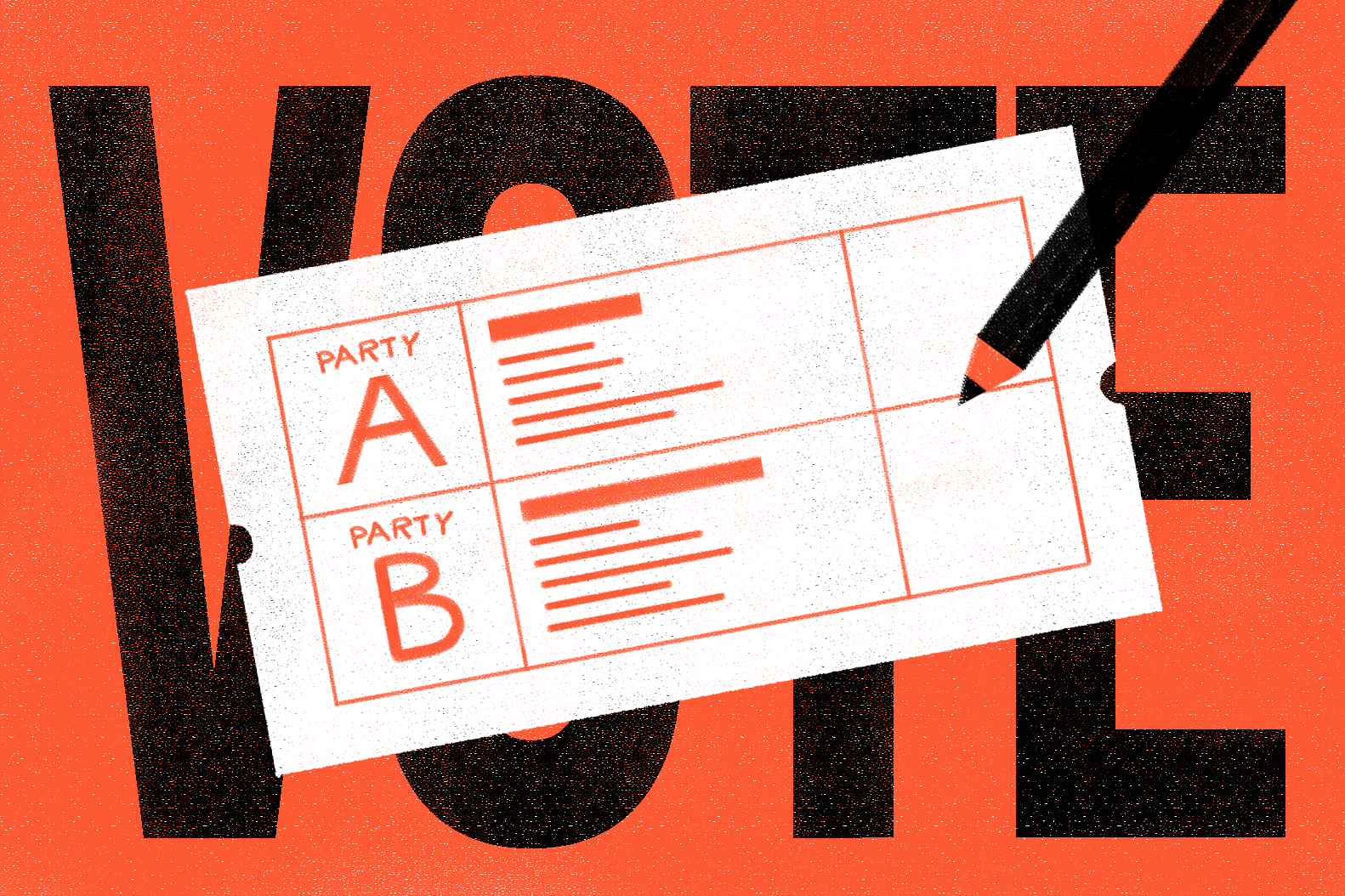Each of us has a lane to run in.
Whether you’re a parent, student or a team member, we have a unique lane to run in that belongs to us. You have a role that only you can perform!
Think of it in terms of driving: There will always be better drivers around, but if we’ve been given the keys to a car and have been licensed to drive – we need to get going. Or if you’re a guitarist and you’ve been asked to play, don’t let the fact that there are better guitarists out there paralyse you from playing your part.
There will always be someone better than us, but that doesn’t mean we’re not good in our own right! We need to guard ourselves against our need to compare ourselves with others.

“Ah, you’re looking at the car beside you again.” How did he know?
It’s silly now that I think of it, but it wasn’t obvious to me when I was a trainee driver, overwhelmed by all the things I needed to look at – that I was slowly veering out of my lane.
But isn’t that what happens when we compare ourselves with people around us? We get less satisfied with where we’re at, with what we have or who we are, and we move away from the centre of our lanes.
Comparison holds the danger of disqualification.
Mr Chan, my favourite driving instructor, was fond of repeating his mantra: “Always look further ahead. Don’t only look at the car in front of you or beside you.”
Look further ahead to who you could grow to become. Keep driving in your lane till you get where you need to be. We won’t win the race if we show up at the finish line in the wrong lane.
According to psychologist Leon Festinger’s social comparison theory, people compare themselves with others when objective standards don’t exist.
- How am I doing as a 25-year-old?
- Am I lagging behind my peers?
- Am I successful enough?
Ever had thoughts like these? Comparison is one way for us to gather information about ourselves and our value when we don’t have an objective standard.
But it’s shaky when we determine our value by comparison, because our value isn’t in our capability or utility to others.
Comparison holds the danger of disqualification.
That kind of value is fragile compared to the inherent value in each of us.
Maybe it doesn’t mean anything to you that there’s never going to be anyone just like you, but your inherent uniqueness tells you something about your value.
You’re not just any other person. You have a lane to run in and something to accomplish with your life. If you believe anything else, you are shortchanging yourself and being robbed of your destiny.

“So, what do you do?”
It’s hard to believe that a person’s “value” is raised or diminished just by their answer to this simple question. That’s the sad reality of the world we live in, and is what a lot of us do: We like to arrange ourselves in a pecking order based on our job titles, salaries, how much we can afford to travel, or whatever else we can find to compare.
William Irvine, a professor of philosophy at Wright State University, calls the comparing of ourselves with others a “social hierarchy game”. The goal of that game is to provoke the most envy from others; the way out of social hierarchy is to quit comparing.
Because when we refuse to play that game, we start seeing one another as people – not our rivals. Suddenly the value of life is no longer tied to the amount of “likes” we have or the kind of brands we can afford.
Comparing ourselves with others pits us against them and it becomes a competition.
 Have you ever met someone and got so hung up over the fact that they can do something way better than you can?
Have you ever met someone and got so hung up over the fact that they can do something way better than you can?
And it may not even be something that you like or want to do! Well, I have. I’m familiar with the feeling of making everything a competition and it’s tiring.
It’s why I’ve found a lot of comfort and wisdom in the saying, “I’m not interested in competing with anyone. I hope we all make it.”
That frame of mind makes the world a much better place. And we can start with encouragement. If we see someone doing well in their field, running well in their lanes – give them a compliment. Call someone out for doing a good job, instead of wondering why we’re not as good as them
If we compared less and built relationships more, we would reach the finish line in a better shape and more fulfilled at the end.
We all have our own lanes to run in. We are but threads in a grand tapestry being woven together.









